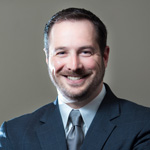Church’s Chicken chief executive officer Jim Hyatt knows the quick-service restaurant industry inside and out. He started at Burger King in 1972 and has never worked outside of the restaurant industry. While social media and globalization change how restaurants and their franchisees work, many of the same basics Hyatt learned in 1972 still apply. He discusses what the modern CEO needs to consider, and how this applies in the franchise restaurant business.
What strategies, trends, or ideas are shaping the chief executive officer role today?
Jim Hyatt: The CEO today must be observant of the culture within the organization. Social media can expose a brand to decline or push it beyond the resources of traditional marketing. So culture oversight and participation have to be high on the CEO job description. I also think CEO participation is important right now. My teams would tell you I spend an equal amount of time flying at all altitudes. Being strategic is required as a CEO but also being comfortable to be in kitchens and dining rooms to ensure the direction from the top is received and working is essential.
The new economy can’t afford CEOs to stay in board meetings. Today’s restaurant CEO needs to participate in all levels to ensure time and focus are integrated and clarified where necessary to protect margins. The new economy is more putative on brands that make mistakes.
Read more of Profile’s Top 50 articles.
You have a long history in the restaurant industry. How did you get started and then move up into your current role?
I started at sixteen, working nights through high school and college at a Burger King in Tennessee. I loved the fast pace, team dynamics, brand-building, and serving the public. I never left because I still love that service. I worked various field jobs and as a corporate VP of operations for Burger King back in the eighties. I then became a Burger King franchisee in Atlanta for eleven years, beginning in 1991. Then I was recruited by the executive team at Burger King in Miami to help turn the brand around and take it public. We were successful and brought the company through a tough time, going public in 2006. It was a rewarding experience, helping the franchisees regain the performance and profitability.
After working as a chief global operations executive at Burger King, I wanted to learn more, and I left Burger King to become CEO of Cosi in 2007. I took on the new brand. At the same time the economy was going through the worst economic recession in recent memory, allowing me to learn to get the best use of time and treasure. I was approached in 2011 by a private equity firm, FFL, asking if I would move back to Atlanta and lead the Church’s Chicken team. Now, I could not be happier with the team we have put together, the product, and the global opportunities we have. I feel like I’ve had an advantage as a restaurant CEO, because I’ve worked almost every position from the backdoor forward: mopping floors, installing décors, fixing the fryers, owning a franchise—I have had the experience along with great teams. Signing personal guarantees and worrying about payroll, sending royalty checks—its means something to the franchisees to know their CEO has walked in their shoes.
Why Church’s? What was the incentive to change?
After thirty-six years with Burger King, I had a curiosity to see what else was out there. I had a lot of great experience and felt prepared for the move to be the CEO at Cosi, and then here at Church’s, trying to build up a brand that has so much opportunity to grow as a challenger brand into a segment leader. Our global opportunity is significant, and we have a team here that can position the business on an upward trajectory.
Why Church’s? Because the food quality here is best in class, and there’s the opportunity to build teams and franchises, and to push this brand up to its rightful place on the global stage; it’s exciting to lead that charge.
What is your vision for making the brand a market leader?
First, you have to put together the right team that has the experience and drive to support and motivate franchisees. Then, you go after the vital few priorities to drive results. The priorities our team is focused on are operations, marketing, development, and image excellence. The primary duty with a franchise brand is the progressive improvement of all areas of restaurant operations at a high level, then layering on effective and relevant marketing, then replicating the brand through unit growth. And for our brand of sixty years and more than 1,700 restaurants, we also have to bring up the image of the older restaurants.
Our operations teams are doing an awesome job taking care of guests. The feedback we receive indicates they agree with our improving levels of service, cleanliness, and food quality. We recently changed ad agencies, and our CMO and agency are passionate about chicken and excited to reintroduce the public to our brand with our new campaign. Chicken is the number one protein in the world, and we want to leverage that globally in our marketing. That leads us to domestic and international growth that is benefiting from adjustments in our facilities and site selection. The new restaurants we are opening are exceeding our high performance expectations and setting sales volume. Also, because Church’s is a brand that has been around since 1952, we need restaurants with more seating and more modern amenities. That work will begin in 2015.
How do you communicate these initiatives across all of those teams?
We do all of the formal things—national conventions, franchisee meetings, webcast calls. But our interest is to develop a relationship with franchisees. Some are large operators and are somewhat self-sufficient; others are small and need more support. They all want to know how are they performing operationally and how to best market their restaurant. That requires a lot of one-on-one time with franchisees. I’m always on the ground, meeting franchisees at their locations, seeing how things are going. We try to be good listeners—it’s our job to find out what’s not working for the franchises or what they think might work better.
What unique considerations should a CEO make based on their company?
In every situation, be the best at what makes your brand different, competitive, or in the eyes of the guests, a brand they like. Be good at what you’re supposed to be good at, period. Your core attributes have to be identified, celebrated, and protected.


